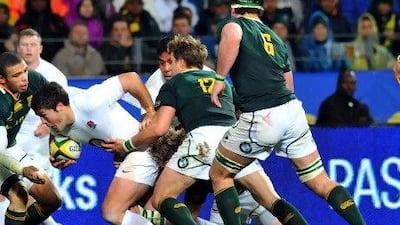Allure of the short form of the game grows
The Dubai Rugby Sevens went through a spell around five years ago of selling itself as the place to see the next generation of rugby union stars making their first step on the international ladder.
It was not an idle boast, either. In 2006 alone, England's side included Tom Croft, James Haskell and David Strettle - one a British Lion and the other two full England internationals. And their England side did not even make the final at the Exiles that year.
Stars of the 15-man game in the making? Not so much lately. This format has become an end in itself.
Of the 19 players England have centrally contracted on their national sevens programme, few will be aspiring to any sort of XVs career at all, such are the possibilities open to them in the abridged game now.
The recently aired view of Ben Foden, another graduate of the sevens sphere and now a full England international, that these players would prefer a Premiership contract is an antiquated one.
If a sevens player excels today, he has the chance to play a World Cup in Moscow at the end of this season, with the prospect of an Olympics in Rio de Janeiro in a little under four years. Then there are the annual jaunts to places like Dubai and Hong Kong.
What is not to like about it?
A rugby player's career is a short one. The bright ones realise that a chance to play on the short format's world tour beats the drudgery of trying to pursue a living in XVs any day.
Follow us
& Paul Radley


